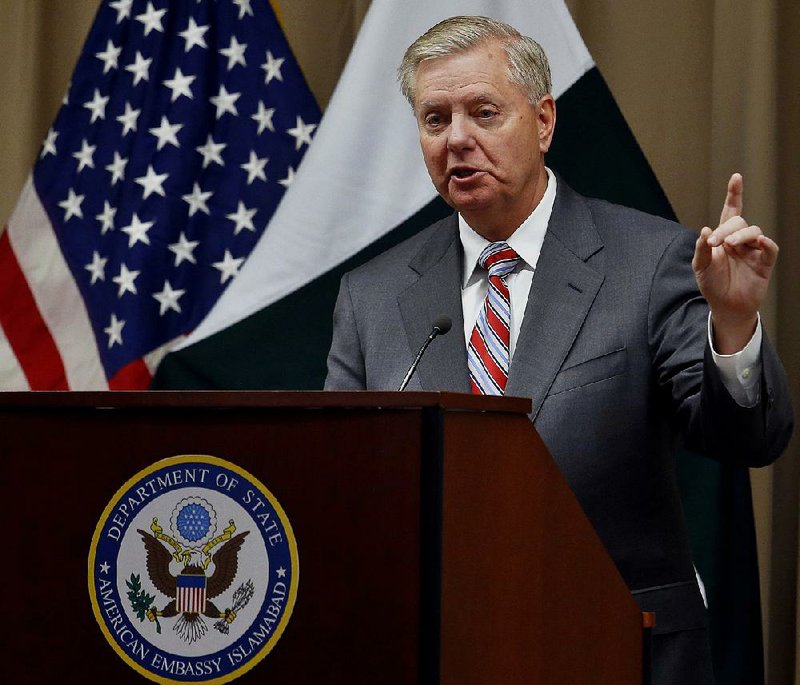ISLAMABAD -- U.S. Sen. Lindsey Graham said on Sunday that he will urge President Donald Trump to meet with the leaders of Pakistan and Afghanistan so that they can devise a plan to end Afghanistan's 17-year war.
Graham, a South Carolina Republican, spoke at a news conference in Islamabad after meeting with Pakistani Prime Minister Imran Khan, who has previously faced criticism for suggesting peace talks for ending the U.S.'s longest military engagement should include the Taliban.
"I think they will hit it off" if Trump and Khan meet, Graham said, adding that the two leaders have "similar personalities."
Graham said that the war in Afghanistan "will end through reconciliation" but that no such talks should include the Islamic State extremist group or al-Qaida.
Graham said he would also urge Washington to reach a free-trade agreement with Pakistan.
His comments came shortly after U.S. peace envoy Zalmay Khalilzad concluded his four-day visit to Pakistan, during which he met with Khan and the country's powerful military chief, Gen. Qamer Javed Bajwa.
Khalilzad arrived in Islamabad on Thursday in effort to find a peaceful end to the conflict in Afghanistan, saying that Washington was ready to "address legitimate concerns" of all sides in the conflict.
Khalilzad took to Twitter on Saturday, saying: "I see that many are concerned that the United States is willing to both talk and fight. Let me be clear: the US wants #peace."
He said it was urgent that fighting ends in Afghanistan but "pursuing peace still means we fight as needed."
During his stay in Pakistan, local media reports suggested that efforts were underway to invite the Taliban for talks with a U.S. delegation in Pakistan.
"During the consultations, [Pakistan and the U.S.] reaffirmed their commitment to advance the Afghan peace process," said a U.S. Embassy statement. It said that during Khalilzad's meetings in Pakistan, the U.S. peace envoy highlighted that all countries in the region will benefit from peace in Afghanistan.
Khalilzad has met several times with Taliban insurgents since his appointment in September, including last month in the United Arab Emirates, with Saudi, Pakistani and UAE officials also participating.
But the Taliban have consistently refused direct talks with Afghan President Ashraf Ghani's representatives, calling the Kabul government U.S. puppets. Kabul sent a delegation to the UAE meeting, but it did not take part in the talks at the time.
The Taliban currently control nearly half of Afghanistan and are more powerful than at any time since the 2001 U.S.-led invasion.
Washington hopes that Pakistan can help end the conflict. Pakistan, meanwhile, says its influence on the Taliban is overstated, but that it will do whatever is possible for peace, including arranging Taliban talks with officials from the U.S. and Afghanistan.
A Section on 01/21/2019
